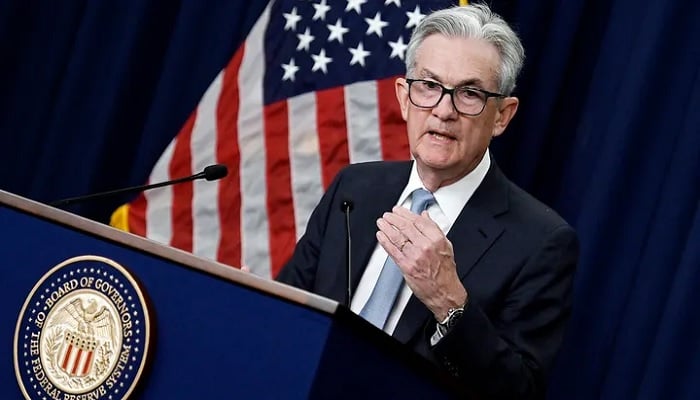In a worrying development, the US Federal Reserve is ready to increase interest rates — and maintain them there — to ease inflationary pressures, Chairman Jerome Powell said Friday.
“We are prepared to raise rates further if appropriate, and intend to hold policy at a restrictive level until we are confident that inflation is moving sustainably down toward our objective,” he told a central banking conference in Wyoming, according to prepared remarks.
After 11 rate hikes in less than 18 months, the US benchmark lending rate now sits at a range between 5.25 and 5.5% — its highest level for 22 years.
However, the rapid cycle of interest rate increases has failed to definitively quash inflation, which remains stuck above the Fed´s long-term target of 2%, despite slowing sharply from recent multi-decade highs.
This year´s Jackson Hole retreat of central bankers will examine “structural shifts in the global economy,” the Kansas City Fed, which organizes the annual retreat, announced in a recent statement.
European Central Bank President Christine Lagarde will address the symposium on Friday afternoon, while senior central bankers from the United Kingdom and Japan will take part in a panel discussion on Saturday.
Reaffirming 2% target
On Friday, Powell told the Jackson Hole retreat that the Fed’s 2% goal “is, and will remain, our inflation target.”
“We will need price stability to achieve a sustained period of strong labor market conditions that benefit all,” he said.
“We will keep at it until the job is done,” he added.
Analysts and policymakers remained split ahead of Powell´s speech on the likelihood of a 12th hike to tackle inflation at the Fed´s next rate-setting meeting in September.
Surprisingly strong jobs and growth data in recent months indicate that the US economy is in better health than many economists feared earlier this year when they forecast the United States was headed for recession.
In his speech, Powell announced the Fed estimated a slight annual increase in its favoured inflation measure in July, known as the personal consumption expenditures price index (PCE).
The Fed estimates that annual PCE in July rose to an annual rate of 3.3% from 3% a month earlier. Inflation excluding volatile food and energy prices also increased.
Official figures will be published by the Commerce Department on Thursday.
Futures traders currently assign a probability of close to 85% that the Fed will vote to pause rates at the next Federal Open Market Committee (FOMC) meeting on September 19-20, according to data from CME Group.
Powell urges caution
Looking ahead, if price increases continue to slow and the Fed holds rates steady, policymakers will find themselves in a scenario where real, inflation-adjusted interest rates are rising.
This would have the effect of continuing to slow the US economy, which some fear could tip it into recession.
Despite insisting the Fed could yet raise rates, Powell urged caution moving forward during his speech Friday.
“Given how far we have come, at upcoming meetings we are in a position to proceed carefully as we assess the incoming data and the evolving outlook and risks,” he said.
The Fed will assess its progress against inflation “based on the totality of the data and the evolving outlook and risks,” he added.
